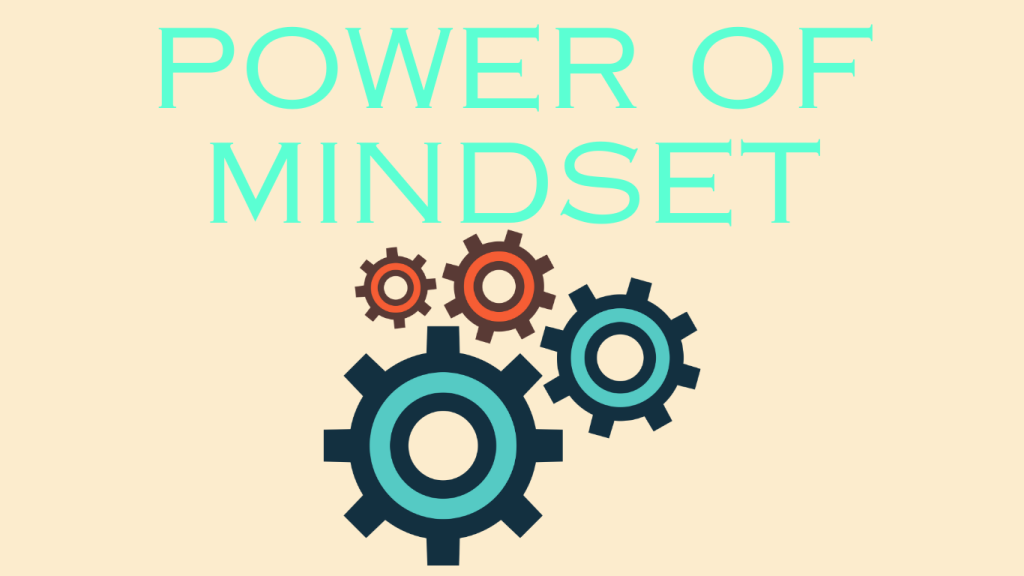Unlocking the Power of Mindset: How Your Thinking Shapes Your Reality

In a world constantly shifting and full of unknowns, one thing remains entirely within your control: your mindset. While we can’t always choose what happens to us, we can choose how we interpret, respond, and grow from every experience. That choice — the power of perspective — is what defines our mindset.
Psychologist Carol Dweck, a professor at Stanford University, introduced the concept of fixed and growth mindsets. She explains that people tend to view intelligence, talent, and character as their most basic characteristics. These basic characteristics are often seen as either fixed or capable of development.
Those with a fixed mindset believe that these qualities are a deep seated trait, unchangeable and inherent, while those with a growth mindset see them as abilities that can be cultivated through effort and learning.
Table of Contents
Introduction: The Invisible Force Shaping Your Life
Mindset is the invisible force that quietly shapes every aspect of our lives, from the way we approach challenges to how we define success. As Stanford psychologist Carol Dweck has shown, the beliefs we hold about our most basic qualities—like intelligence, talent, and character—play a significant role in our personal growth and self-awareness.
Whether we realize it or not, our mindset is closely related to how we understand ourselves and the world around us. Those with a growth mindset see their abilities as just the starting point, believing that effort and learning can lead to development and achievement. In contrast, a fixed mindset leads us to view our intelligence, personality, and moral character as deep-seated traits—unchangeable and carved in stone.
This can create a consuming goal of constantly proving ourselves, rather than focusing on growth. In this article, we’ll explore how your mindset, as described by Carol Dweck, can shape your life, your success, and your understanding of what you’re truly capable of.
What Is Mindset?
At its core, mindset is the collection of beliefs and attitudes we hold about ourselves, others, and the world. These beliefs influence how we process information, react to challenges, and pursue goals. Psychologist Carol Dweck famously categorized mindset into two main types, highlighting the distinction between fixed versus growth mindset:
- Fixed Mindset: Belief that abilities, intelligence, certain personality traits, and talents are static and unchangeable. People with fixed mindsets, such as fixed mindset students, often avoid challenges, give up easily, and view effort as fruitless.
- Growth Mindset: Belief that abilities can be developed through dedication, learning, and hard work. Those with growth mindsets embrace failure as feedback, persist through obstacles, and thrive on effort.
The Origins of Mindset
The roots of mindset run deep in the fields of social psychology and developmental psychology. From a young age, our beliefs about ability and intelligence are shaped by the messages we receive from parents, teachers, and our environment. For example, praising intelligence or talent—saying “You’re so smart!”—can unintentionally reinforce a fixed mindset, making us believe that our abilities are fixed traits.
On the other hand, process praise, which focuses on effort, strategies, and perseverance, encourages a growth mindset by highlighting that skills can be developed. Our cultural background, education, and socioeconomic status also play a role in shaping whether we develop a fixed or growth mindset. Understanding these origins is essential for developing strategies to foster a growth mindset, helping us overcome obstacles and unlock our potential for growth.
Carol Dweck’s Theory: The Two Mindsets
Carol Dweck’s groundbreaking research introduced the world to the concept of two mindsets: fixed and growth. According to Dweck, people with a fixed mindset believe their abilities and intelligence are innate and unchangeable—if you’re not good at something, you never will be. In contrast, those with a growth mindset see abilities as qualities that can be developed through dedication, learning, and hard work.
The difference between these two mindsets goes beyond simply having a positive attitude. A growth mindset means embracing challenges, persisting through setbacks, and viewing every failure as a valuable learning opportunity. Dweck’s theory has transformed how we understand motivation and achievement, showing that adopting a growth mindset can lead to greater success in education, business, sports, and beyond. It’s not about being endlessly optimistic, but about believing that growth is always possible.
Why Mindset Matters
Your mindset colors every aspect of your life. It affects:
- Personal development: A growth mindset fuels curiosity, lifelong learning, and resilience. Positive mindsets also contribute to greater resilience and adaptability in the face of challenges.
- Relationships: An open, optimistic mindset fosters empathy and better communication.
- Career success: Those who believe they can learn and grow, and who cultivate the right mindset and an entrepreneurial mindset, are more likely to take initiative, innovate, and lead.
- Mental health: Mindset can directly influence how we manage stress, anxiety, and emotional wellbeing.
Successful people often maintain a focused approach to growth and learning, which helps them achieve their goals and overcome obstacles.
Signs You May Be Stuck in a Fixed Mindset
- You avoid challenges or give up easily, sometimes because you are secretly worried about your abilities.
- You believe failure is proof you’re not good enough, and may feel deficient or think you have only a certain amount of ability.
- You feel threatened by others’ success and may try to hide deficiencies rather than address them.
- You often say things like “I’m just not good at that” or “That’s just the way I am.”
Staying in your comfort zone can reinforce a fixed mindset and limit your personal growth.
The Latest Research on Mindset
Recent studies continue to highlight the powerful impact of mindset on our lives. A comprehensive meta-analysis of mindset research has found that individuals with a growth mindset tend to enjoy higher self-esteem, greater life satisfaction, and improved psychological well-being.
These benefits aren’t limited to a select few—research shows that a growth mindset can be developed and strengthened over time through intentional practice, constructive feedback, and supportive social environments. The influence of mindset extends beyond individuals, too. In the context of systems change, leaders and organizations that cultivate a growth mindset are better equipped to adapt, innovate, and achieve lasting success. The evidence is clear: developing a growth mindset is a key factor in boosting motivation, resilience, and overall life satisfaction.
How to Cultivate a Growth Mindset
- Become Aware of Your Self-Talk
Start by noticing the thoughts that run through your mind, especially during tough situations. Replace defeatist statements with ones that support growth. Instead of “I can’t do this,” try “I can’t do this yet.” - Reframe Failure as Feedback
Every misstep is a stepping stone to improvement. Ask yourself: What can I learn from this? or What would I do differently next time? For example, after a setback, consider how you can prepare for the next test as an opportunity for growth. - Embrace Challenging Challenges
Lean into the uncomfortable and challenging situations. The more you practice doing hard things, the more your brain adapts and grows. - Celebrate Effort, Not Just Outcome
Recognize the value of persistence, consistency, and commitment — even when the result isn’t perfect. Remember, being willing to work hard is key to developing a growth mindset. - Surround Yourself With Growth-Oriented People
Mindset is contagious. Connect with people who inspire, challenge, and encourage you.
Maintain a healthy dose of self-belief, especially during challenging times, to foster resilience and continued growth.
Overcoming Obstacles: The Role of Resilience and Persistence
Achieving success and overcoming life’s obstacles requires more than just natural talent or intelligence—it demands resilience, persistence, and a growth mindset. People with a fixed mindset often avoid challenges and may give up when faced with setbacks, feeling that their abilities are set in stone.
In contrast, those with a truer growth mindset are willing to embrace challenges, learn from mistakes, and keep going even when things get tough. Developing this mindset starts with self-awareness: recognizing your strengths and weaknesses, being open to feedback, and seeing every setback as a chance to grow. As Carol Dweck writes, “Why waste time proving over and over how great you are, when you could be getting better?” By shifting our focus from proving ourselves to improving ourselves, we can develop a growth mindset that leads to greater success, fulfillment, and personal growth in our lives.
Conclusion: Your Mindset Shapes Your World
The stories we tell ourselves become the architecture of our lives, shaping our sense of the world and how we interpret our experiences. A fixed mindset builds walls; a growth mindset builds bridges. The idea of a growth mindset influences how we approach challenges and opportunities, guiding our actions and reactions.
Our ideas about ability and effort directly shape our behavior, determining whether we persist or give up. Often, one belief or action—one thing—leads to another, creating a chain reaction that can either limit or expand our potential. Foundational principles, or stone leads, serve as the bedrock for personal growth and success.
The updated edition of Carol Dweck’s book ‘Mindset’ continues to provide relevant insights into the power of beliefs and the science of change. Dweck’s self theories, which explore how our views of ability and intelligence impact performance, have transformed our understanding of motivation and achievement. The new psychology of mindset represents a paradigm shift, emphasizing that intelligence and personality are malleable, not fixed. Over the past twenty years, research and practice have deepened our knowledge of how mindsets develop and how they can be changed.
Cultivating the optimal combination of mindset traits—a royal flush—can set you up for success in any area of life. The placebo effect demonstrates how powerful our beliefs can be, influencing not just our mindset but our actual outcomes. When we focus on cultivated leads, nurturing and developing our potential over time, we create lasting change and growth.
Whether you’re starting a new career, learning a new skill, or simply trying to be a better version of yourself, your mindset will either hold you back or propel you forward.
Remember, mindset isn’t a permanent label. It’s a daily decision — a conscious choice to believe in your ability to grow, adapt, and thrive.

